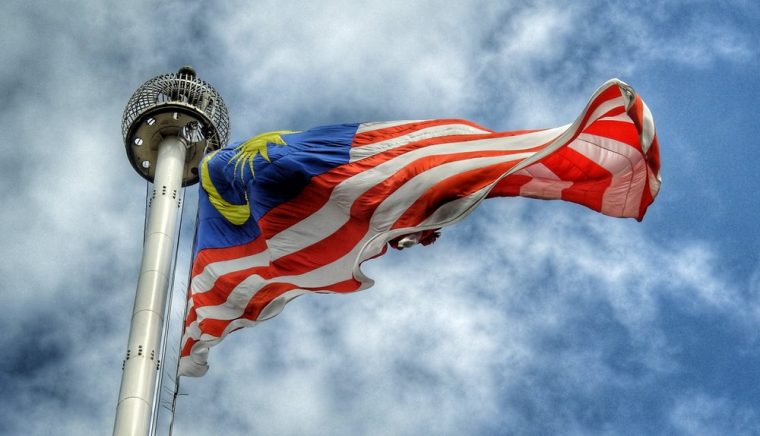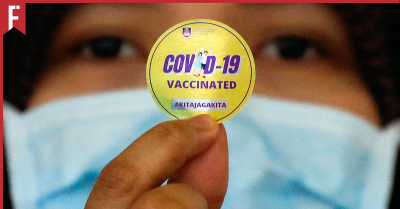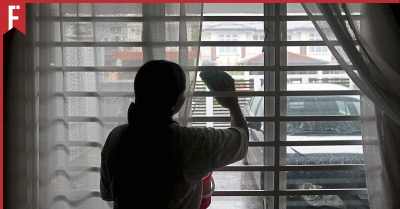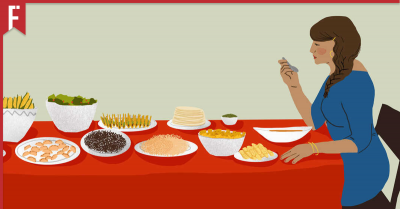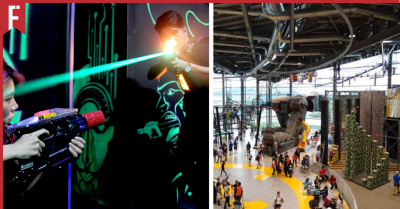
Corruption has been a bane in this country for generations. | Source
Throughout the history of our country, one particular issue has been burrowing deeper and deeper into our culture. It’s something that affects every Malaysian – young or old, rich or poor, at some point or another we’ve all had to deal with it.
I’m talking, of course, about corruption.
Many people, especially among the younger generation, have resigned themselves to corruption in their everyday lives. I’ve heard people say things like “There’s nothing I can do”, “It’s just how the world works” and even “It’ll never affect me anyway, so why bother?”
However, despite what some may believe, the truth is that the younger generation is the one that is most affected by corruption. According to Transparency International Malaysia president Datuk Akhbar Satar, between 2013 and 2018, 55.2% of corruption convictions involved young adults. Which means that if we want things to change, we need to start with the younger generation, not just the older one.
Corruption Affects Us All
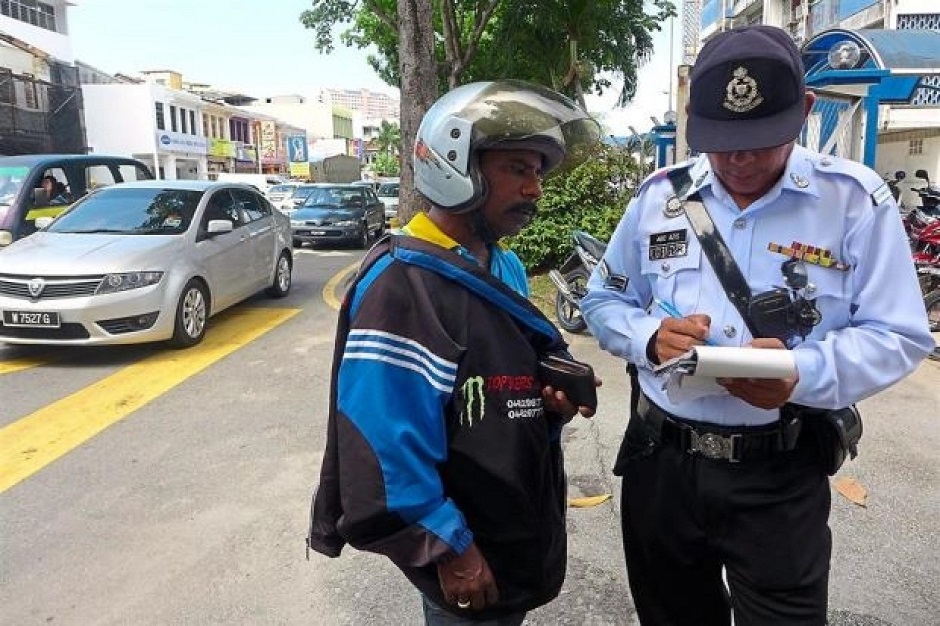
Corruption isn’t something that only affects politicians or rich people. In fact, the vast majority of corruption involves the ordinary rakyat like you and me.
Last year, I had my own brush with it when I went to get my driving license renewed. I thought it’d be a simple issue, but the problem was that I went on a Friday, which meant that when I arrived at the Jabatan Pengangkutan Jalan (JPJ) office there was already a long line stretching all the way outside the building. For almost half an hour I stood in the muggy afternoon heat as the line sloooowly moved forward.
Then, a stranger approached. I’d seen him talk to a few people further up the line, but he wasn’t wearing a uniform or anything, so I assumed that he was just another person here to get his license renewed.
Instead, he introduced himself as “Ahmad” and claimed to be working here. He offered a simple deal: for a small fee, he’d help me skip the line and get my license sorted out in ten minutes.
Feeling exhausted and wanting to get this over with, I agreed. Ahmad took my money, photo and old driving license and told me to wait at a shaded area to the side. Then he moved on to the next person in line.
I waited in the designated area along with a few other people who’d taken Ahmad’s deal. After 15 minutes, some of us started to wonder if we’d gotten scammed. One guy even asked if he should call the police.
Then, Ahmad came back, carrying all our new driving licenses in a little plastic bag. What a relief!
But as I drove back home later, shiny new driving license in my wallet, I suddenly wondered: Was that actually alright?
Even in a Pandemic, Malaysians Are Concerned About Corruption
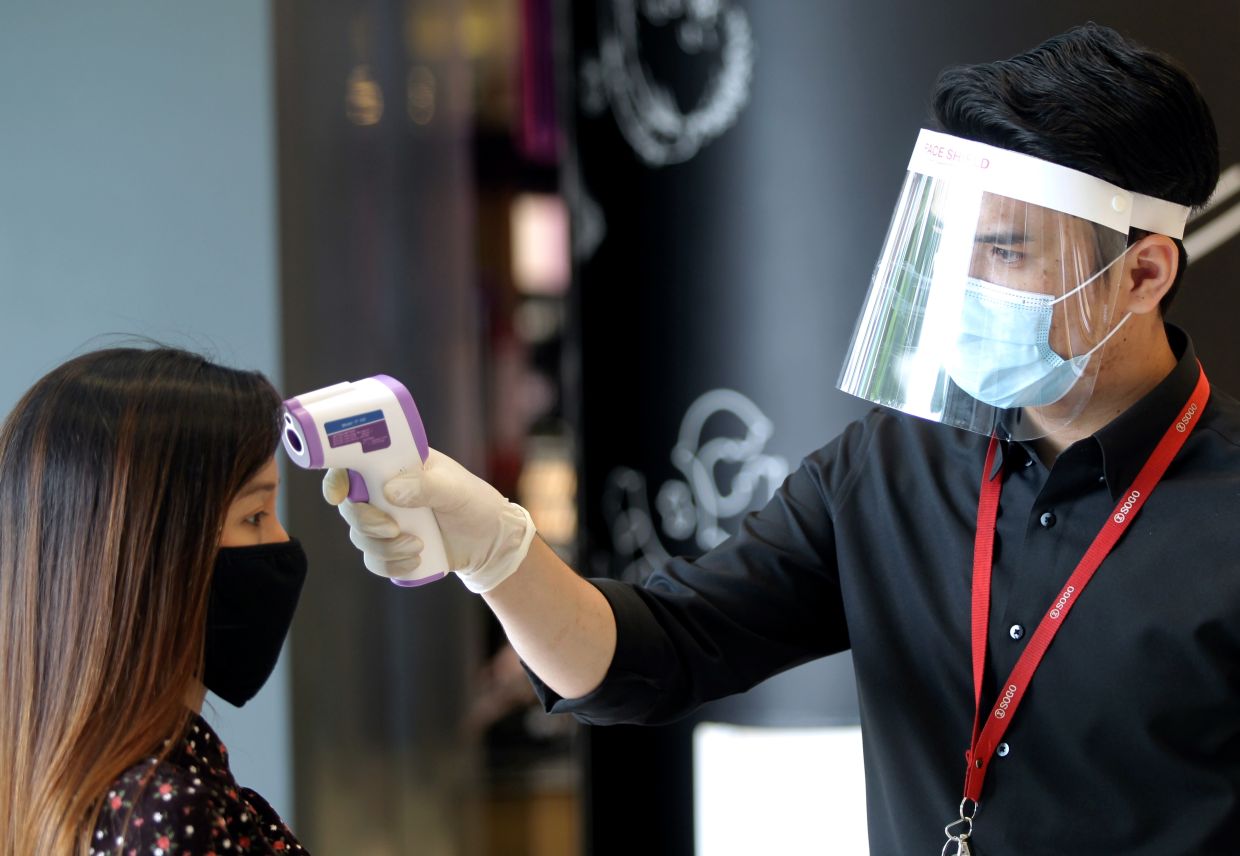
Taken in isolation, my personal experience with Ahmad may not seem like a big deal. After all, it’s just a few ringgit, right? Why should we focus on that when we have so many other problems to worry about this year?
However, this isn’t an isolated problem. Corruption has become so entrenched in our nation that it remains on the rakyat’s minds even in the middle of the COVID-19 pandemic.
According to the Global Corruption Barometer (GCB), 71% of Malaysians currently believe that government corruption is a big problem. In addition, 13% of public service users have admitted to paying a bribe in the last 12 months.
“Out of all public institutions, Parliament, the police, and government officials ranked the highest for perception of corruption, with 36%, 30%, and 28% of Malaysians surveyed, respectively,” said Transparency International Malaysia president Muhammad Mohan. He added that 39% strongly believe that corruption is on the rise, and 36% found the MPs to be corrupt.
“It is clear that the rakyat believe we can all fight corruption. However, there appears to be a slight dip in expectations when it comes to politicians and their officials of late, which may have to do with all the political instability, party jumping, allegations of money politics, and corruption scandals involving political figures.”
According to The Malaysian Society for Transparency and Integrity (TI Malaysia), our country still has a long way to go. In 2019, we were ranked 51/180 on the Corruption Perceptions Index (CPI).
The most widely used indicator of corruption worldwide, the CPI score ranks how corrupt a country’s public sector is perceived to be by experts and business executives. The higher the score, the less corrupt the country is perceived to be.
Since 1995, Malaysia has never once scored higher than 53.
Each isolated event may seem insignificant. A little “present” here, a little “duit kopi” there… but it all adds up. By taking part in this, we’re actually making things harder for everyone around us.
But Why Is Corruption Such a Big Problem?

For ordinary Malaysians, higher corruption can seem pretty small. But when you actually think about the costs of all those “unofficial” fines and payments just to get business done, you might be surprised by how much it actually costs us in the long run.
Aside from that, having an “anything goes” corruption culture makes it easy for grifters and scammers to operate.
After all, ‘Ahmad’ the totally legitimate driving license guy may have pulled through once, but what if he’d decided to simply take our money and licenses and just ran for it? What could we have possibly done to stop him? Even the guy who wanted to call the police stopped when he realised that he’d have to explain why exactly he’d given Ahmad his money.
And it’s not like being rich will protect you from corruption either. In fact, according to the Risk and Compliance Portal, corruption makes it harder to start a business in Malaysia. After all, how can you start a business when you can’t even calculate how much it’ll cost to keep running?
Despite numerous anti-bribe campaigns, more than a third of businesses expect to offer a bribe to officials to ‘get things done’. In addition, almost three out of every ten companies admit that they are expected to give gifts to officials in order to secure their operating licenses.
In this kind of environment, how many people are willing to risk putting their money into a business venture?
And the effects of corruption doesn’t stop there either.
Why Are There So Many Potholes?
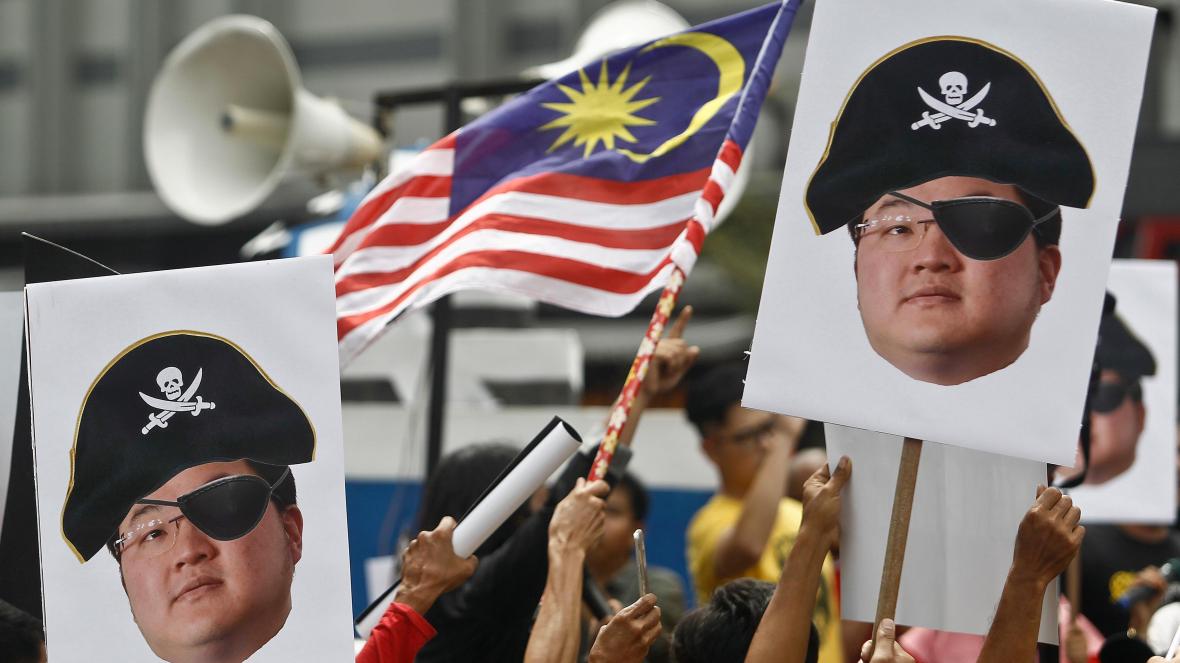
In the National Anti Corruption Plan (NACP) 2019, it was pointed out that the public sector showed an alarming vulnerability rate of 63.30% compared to 17.06% in the private sector.
It is believed that such a high vulnerability to corruption in the public sector stemmed from the weak governance in its procurement practices, legal enforcement agencies and administration.
Even major infrastructure and public work contracts are often awarded without any competitive bidding or open tenders, which means that those with the right connections can get away with providing shoddy work and poor quality services.
Think about it: how many times have you seen a road getting fixed, only for potholes to appear again in just a few weeks?
And that’s not even mentioning the elephant in the room. Big corruption scandals such as 1MDB have not only damaged our country’s reputation internationally but have also caused billions, if not trillions of ringgit disappearing into the pockets of a handful of individuals — you know who I’m talking about.
This is potentially billions of ringgit that could have been used to set up more schools, hospitals or other necessary infrastructure. Heck, just imagine how many PPE units we could have gotten our frontliners if all that money hadn’t been stolen!
Corruption isn’t just some big pie-in-the-sky affair that only concerns government officials. The rampant corruption in politics and government has had many negative effects on us ordinary rakyat.
According to the NACP, some of these effects include:
-
Rising living costs
-
Declining purchasing power
-
Power imbalances
-
Effects on wage and growth
-
Increased crime rate
-
Increase in public debt
-
Leakages due to misgovernance of public funds
And all that is just the tip of the iceberg!
Looking at the bigger picture, rampant corruption is something that makes things harder for each and every one of us in the long term. It destabilises our economy and makes it harder for our nation to attract foreign investment, meaning that the vast majority of us end up remaining stagnant even as a handful of corrupt individuals get to live like kings.
Our “Tidak Apa” Attitude Needs to Go
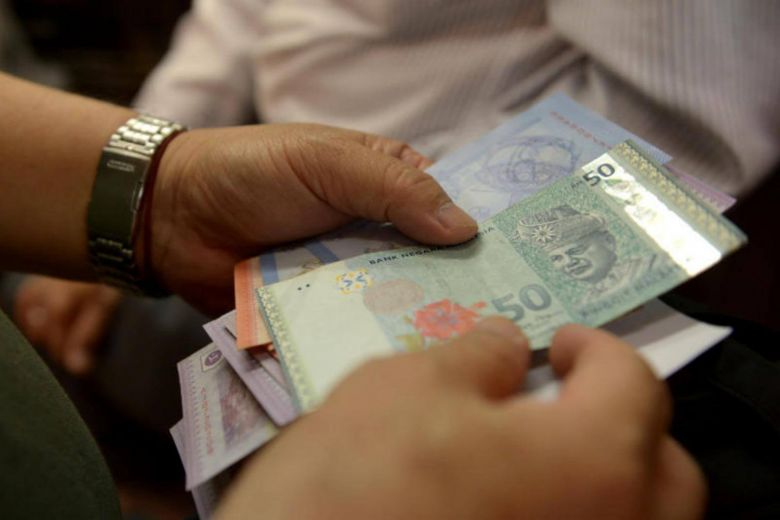
One of the big reasons why corruption has grown to this extent stems from our own attitudes. Many Malaysians have become jaded with the process and think of the bribes as just another part of everyday life.
Even in my own example above, all of us who paid Ahmad didn’t even bat an eye at his claims because we’ve all grown so used to seeing this kind of casual corruption.
A study by the Malaysian Anti-Corruption Commission (MACC) revealed that the the main reasons for public service officers engaging in acts of corruption are:
-
Lifestyle beyond their means
-
Attitude of greed
-
Conducive opportunities in engaging in acts of corruption
-
Low levels of integrity among the officers
In other words, the people who are the most likely to engage in corruption are those who really shouldn’t be trusted in positions of power.
By allowing corruption to continue, we are allowing these people to remain in positions where their greed and selfishness can harm many others. Ahmad the driving license guy may have seemed harmless, but his presence could be a symptom of something far more serious.
In 2018, Transport Minister Anthony Loke reported that 12 JPJ officers and personnel had been arrested by the MACC after it was discovered that they had issued no less than 14,000 driving licences to unqualified drivers. These “lesen terbang” have had some serious knock-on effects.
How many accidents have been caused by allowing these unqualified, untrained drivers to hit the streets? How many lives have potentially been lost over the years because some random official decided that lining his own pocket was more important than doing his job properly?
What Can We Do to Reduce Corruption?

Defeating corruption isn’t quick or easy. It is something that will require effort from each and every one of us. So here’s how you can do your part:
1) Say “No” to Bribes
Don’t try to dress it up in pretty words. It doesn’t matter whether you’re calling it a “present of appreciation”, “duit kopi” or whatever – a bribe is a bribe. How can we expect our officials to remain clean if we ourselves lack integrity?
2) Volunteer or donate to anti-corruption NGOs
Organisations such as Transparency International have been working for years to help reduce corruption in our country. Any help you can offer can help them do their work just a little bit better than before.
3) Report Incidents of Corruption to the Proper Authorities
If you are involved in a corruption incident, it’s important to report it to the MACC straight away. Don’t be afraid to speak up — whistleblowers are protected under the MACC Act 2009 as well as the Whistleblower Protection Act 2010.
The battle against corruption is something that requires the support of each and every one of us. All the points I’ve stated above have already been repeated many times before. But if the rakyat aren’t interested in listening, then all the words in the world can’t help our country.
If we want to clean up Malaysia’s corruption culture, it is imperative to reject corruption in all its forms. All of us, young and old alike, must be willing to take a stand in order to make a difference.
Working together, we can build a better, brighter future for those to come.
Changing the Nation: Do the Youth Need to Take a Stand?
